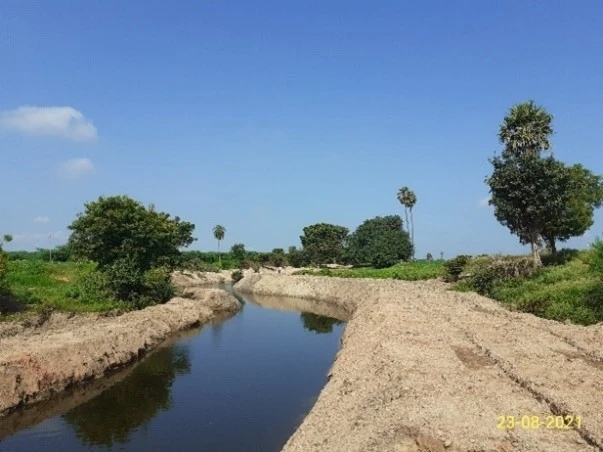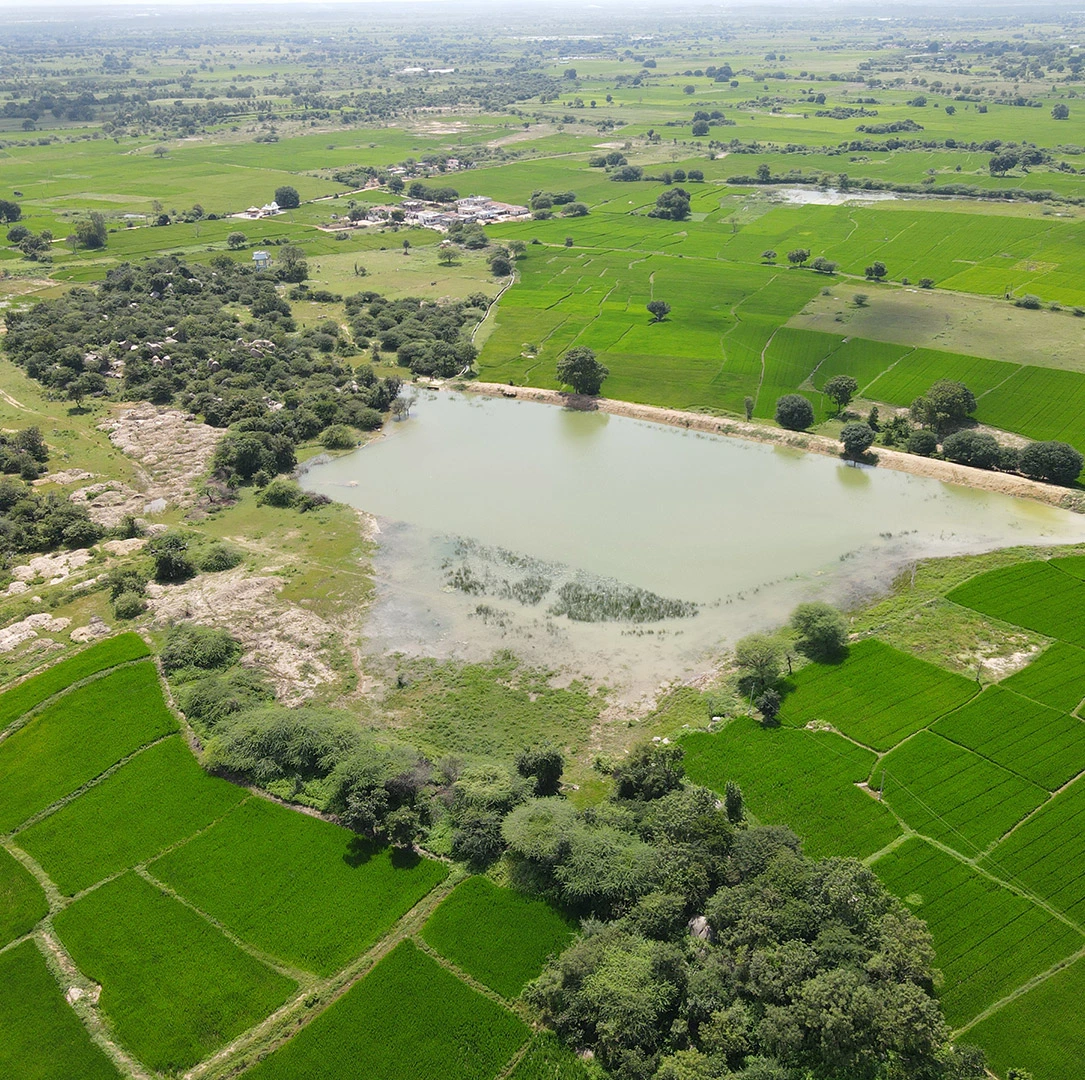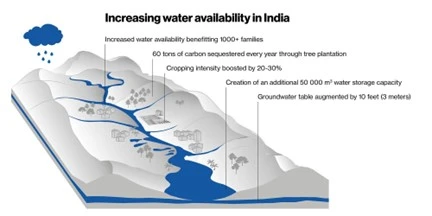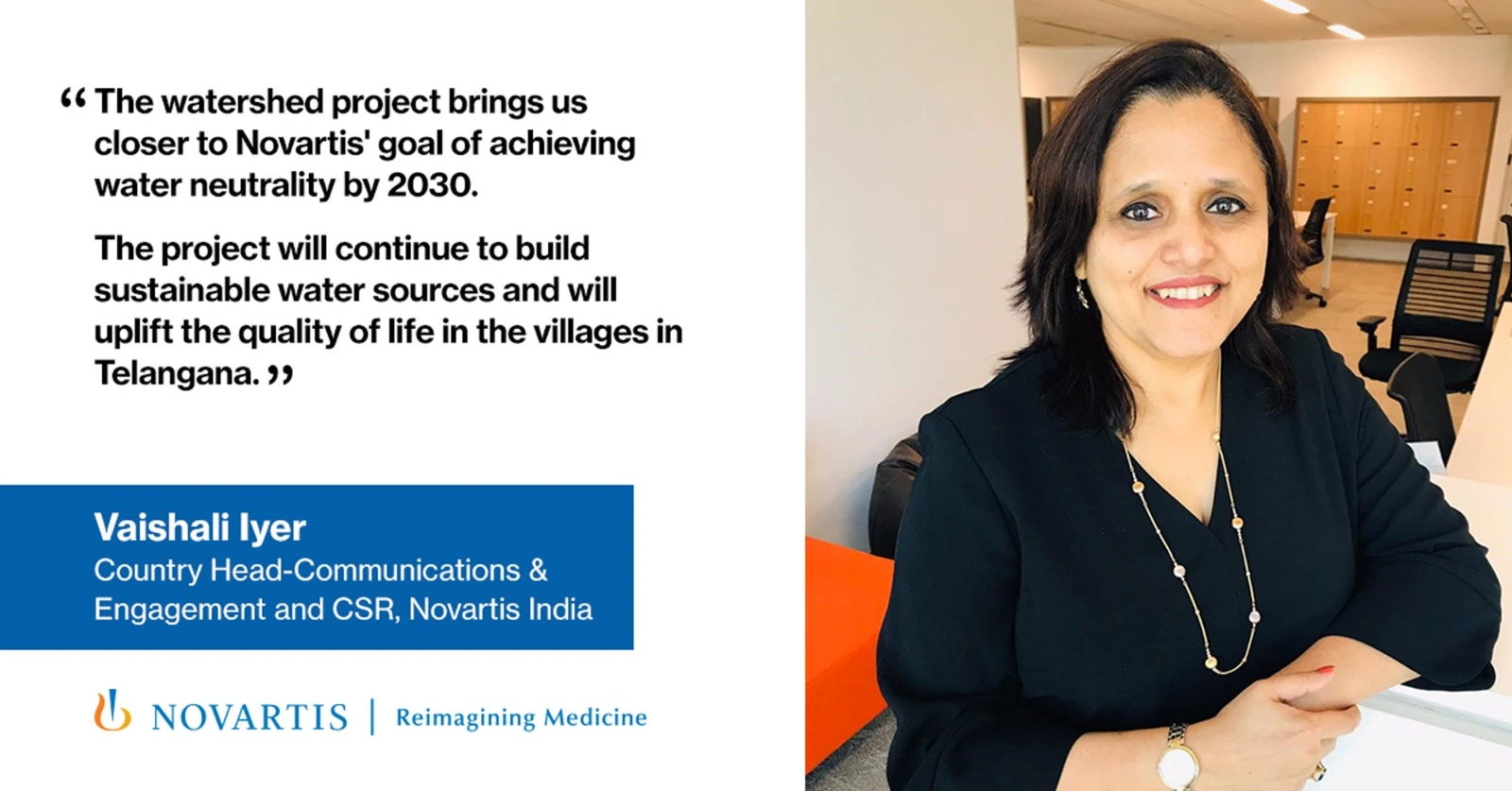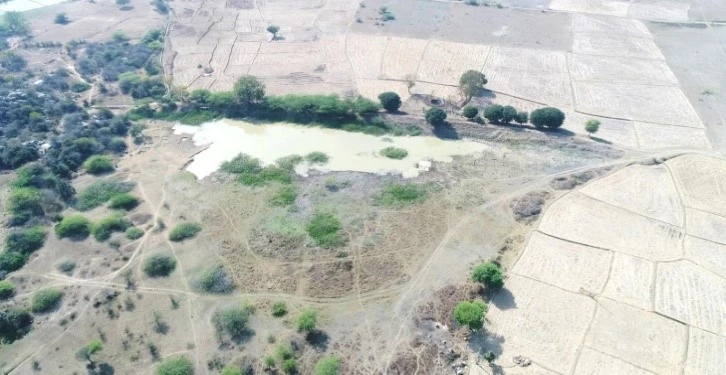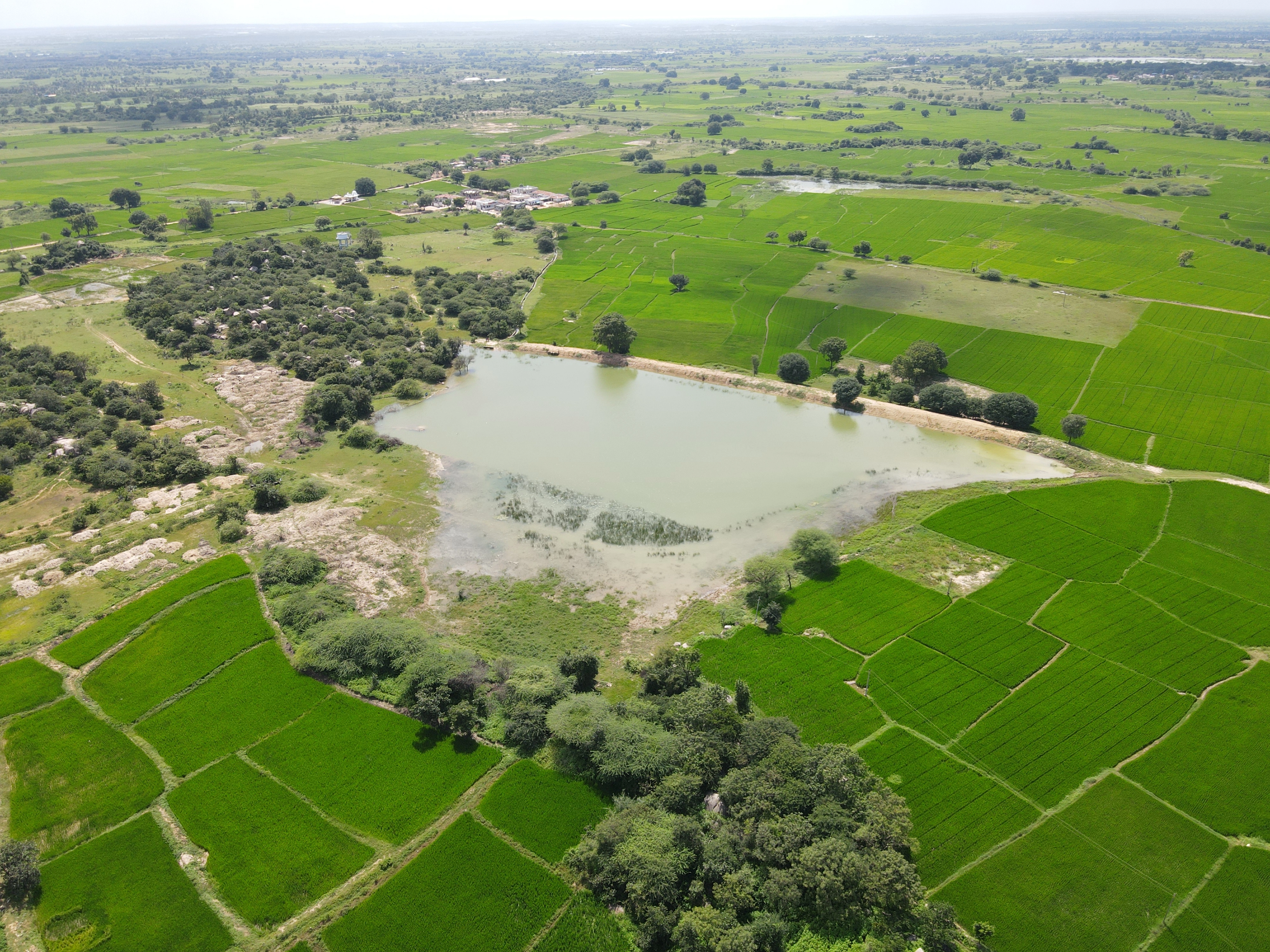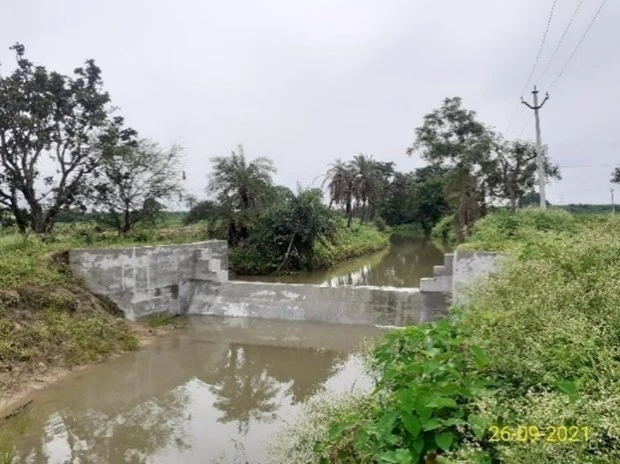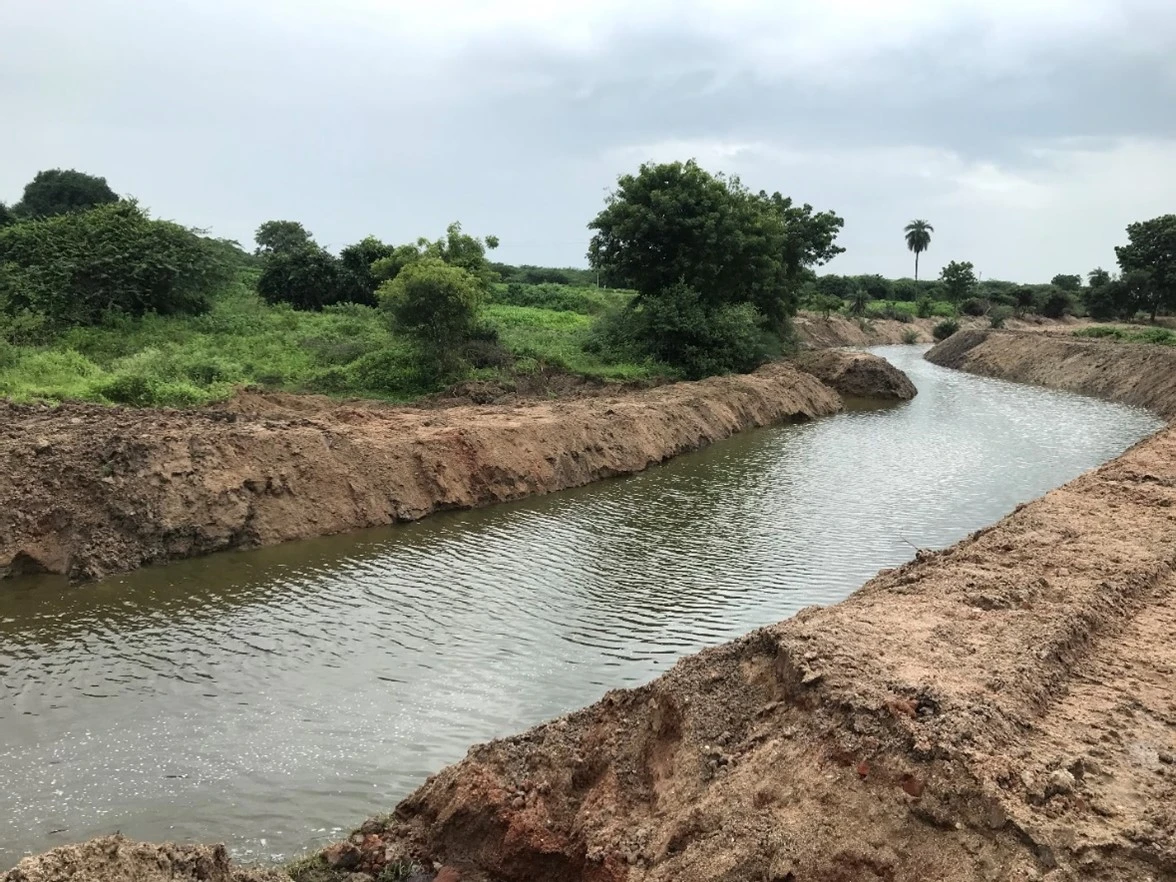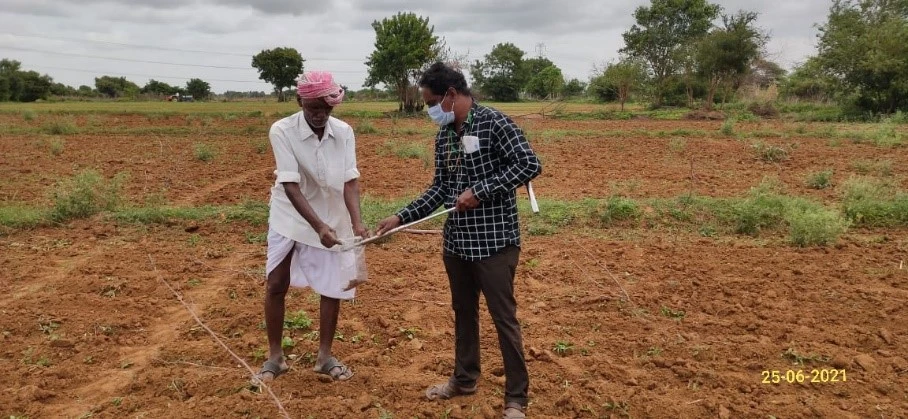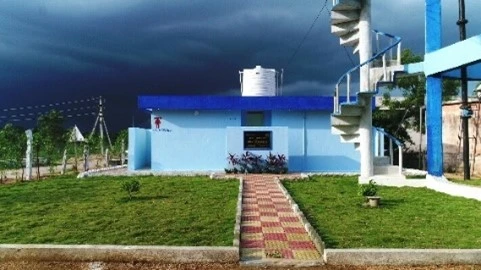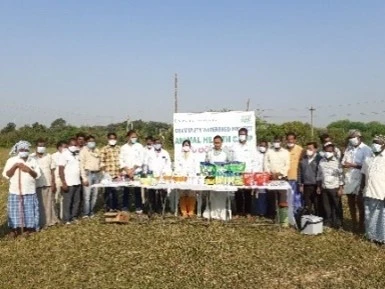India’s growing vulnerability to intense droughts owing to climate change has aggravated its already grave water crisis. The country has 18% of the world’s population, but just 4% of its water resources.[1] Depleted water tables lead to greater dependence on uncertain monsoons. In 2023, the country recorded the hottest February in the last 122 years which has sparked debates on possible heat waves across the country during the summer months, which could lead to lower crop yields and concerns about lower projected rainfalls during the monsoons.
On World Water Day, March 22, 2021, we joined hands with the non-profit National Agro Foundation to launch an integrated watershed development project in five villages near Hyderabad to help address water scarcity in the Telangana region of India, one of the world’s most affected countries.
A watershed is an area of land with a common set of streams and rivers that all drain into a single larger body of water, such as a river, a lake or even an ocean.
It is an interdependent web of living organisms that inhabit a geographic area and depend on it for clean soil, air and water, and it is an entire ecosystem that thrives on it. This integrated approach is essential to promote an inclusive development, one that maximizes economic and social welfare without compromising vital ecosystems. For instance, the project aims to install drinking water and sanitation facilities at local schools, provide livelihood support (e.g., backyard poultry, livestock for milk) to landless families through women self-help groups, and plant 3,000 trees.
[1] How is India addressing its water needs? (worldbank.org)
